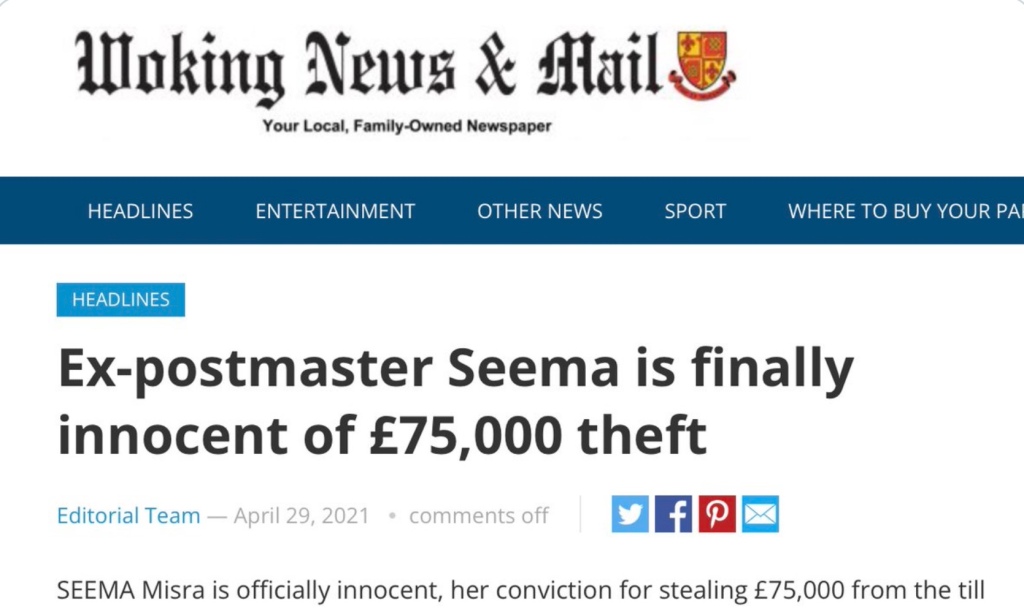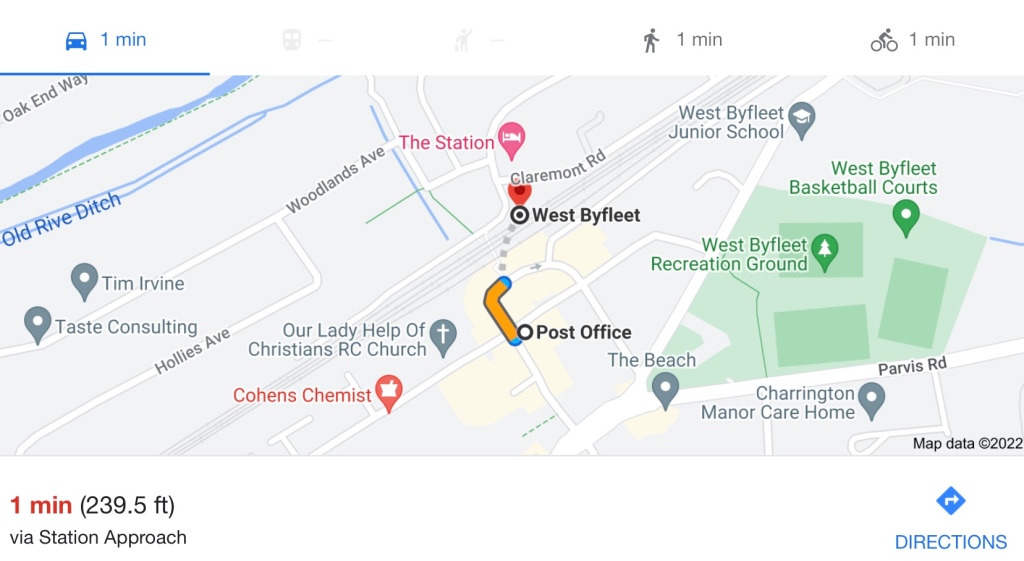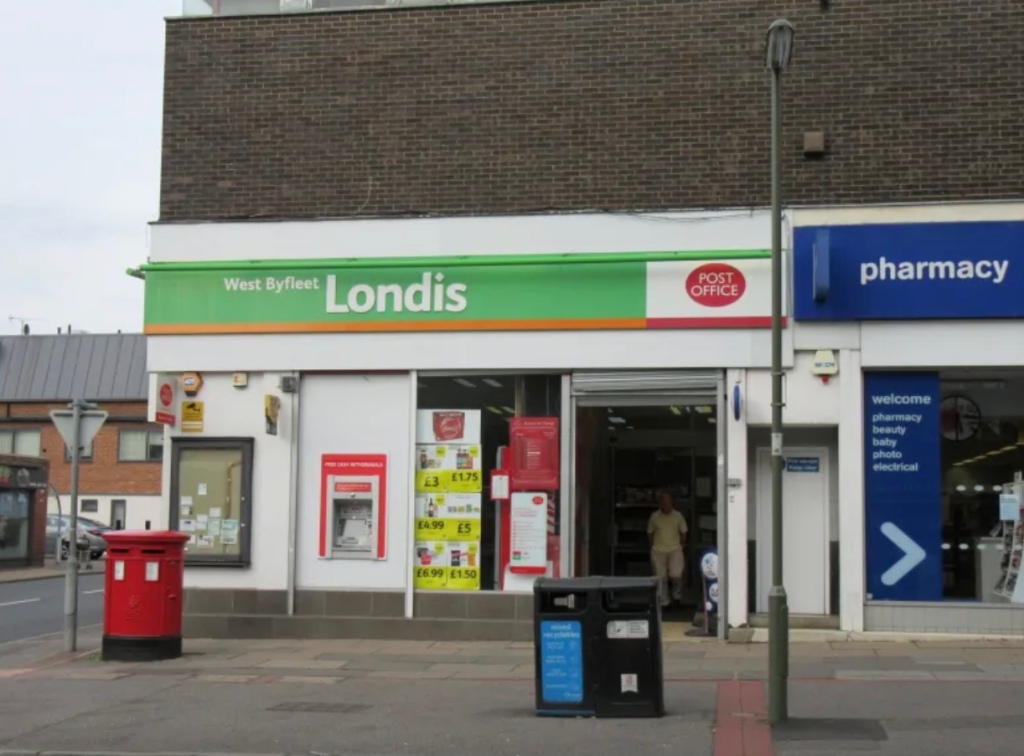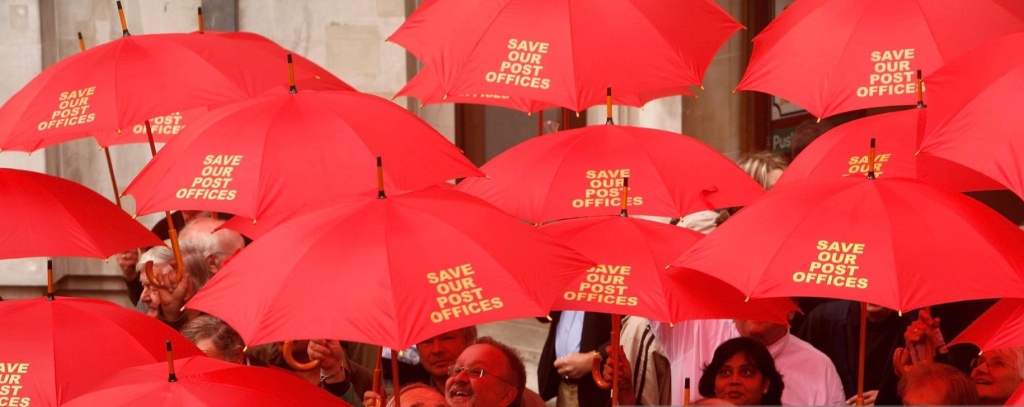
Hack Nick Wallis & Innocence Fraud
In November 2020 Nick Wallis showed an interest in the ’innocence fraud concept’ and said he was ‘new to the idea of innocence fraud’ and that he was ‘fascinated by it’ and he was allegedly ‘trying to turn it into a podcast’.
Because by the end of 2020, early 2021, Nick Wallis was giving the impression he was planning to put together a podcast on innocence fraud, he was put into contact with Roberta Glass, of the Roberta Glass True Crime Report Podcast, based in New York City, NY.
Nadia’s episode on Innocence Fraud with Roberta Glass is well worth a listen;
Nick Wallis stated around this time;
Simon Hall was clearly a big jolt to the senses of a lot of people
I’m going to get back into pulling together what I’ve already recorded, but this is great context, thank you, Stephanie
Nick Wallis – January 2021
In a nutshell, innocence fraud is when a guilty, deceptive and manipulative person, like Joan Albert’s killer Simon Hall (Read more in the The Truth Behind Killer Simon Hall & His Enablers #InnocenceFraud Phenomenon Scam blog series), is enabled by other manipulative and deceptive people, including family members, friends, lawyers, academics, the criminal cases review commission, the court of appeal, MP’s, forensic scientists, hacks, writers, authors, journalists, documentarians, celebrities and others to lie on their behalf and craft false but convincing narratives in an attempt to give the impression the guilty convicted person is innocent.
The passage of time can help in cases of innocence fraud and requires hacks like Nick Wallis to, for example, fabricate leading narratives and mischaracterise the nature of the existing evidence which led to the conviction.
One of the key ingredients of innocence fraud is using the press to fabricate a leading narrative. 20 year veteran forensic scientist John M Collins Jr stated in 2014;
A common thread in many exonerations is the use of willing journalists to front-load a post-conviction investigation with the construction of a compelling innocence narrative.
Indeed, this can also be a problem in typical criminal investigations where the press jumps to conclusions about a suspect’s guilt. But in post-conviction litigation, the passage of time makes it far easier to sell the alternative story as being legitimate
Excerpt by John M Collins Jr from a 2014 article for the National District Attorney Association organisation headed, The Prosecutor with the byline, ’Innocence Fraud’ Demands Prosecutor Vigilance
And this is exactly what Nick Wallis has done with the Post office Horizon cases.

None of the 71 sub-postmistresses or sub-postmasters who, to date, have had their convictions overturned by the court of appeal, have yet to prove they were/are actually, factually innocent for the crimes which they were initially convicted of.
Nick Wallis does not seem to care about this fact and instead he is calling them all ’innocent’.
The court of appeal do not posses the power to declare these people innocent, which Nick Wallis is aware of, and as was made clear on the 30th January 2019 by the Supreme court in their judgement of R (on the application of Hallam) (Appellant) v Secretary of State for Justice (Respondent) [2019] UKSC2.
It reads at paragraph 32;
It should be made clear that the CACD does not possess any power to make formal findings or declarations of innocence. Nothing in the Lord Chief Justice’s judgment in Adams suggested that it did. It is not the CACD’s role to determine whether the appellant is factually innocent.
CACD = Court of appeal criminal division
[2019] UKSC2
False, Misleading & Distorted Narratives
One of the cases Nick Wallis has written about is that of thief and fraudster Seema Misra, who pleaded guilty to six counts of false accounting and was found guilty of embezzling almost £75,000.00, over around two years and seven months, and spent around four months in prison for her crimes. Although the actual figure of Seema Misra’s embezzlement was estimated to be well over £100,000.00.
Links to the transcripts for each day of Seema Misra’s trial, which eventually began on Monday the 11th of October 2010, can be found here

Seema Misra’s convictions were ‘overturned’ on a technicality by the court of appeal in 2021, and she was not found factually innocent, although this fact did not stop editors and newspapers like the Woking News & Mail (Which covers the West Byfleet area, where Seema Misra committed her crimes) for example, falsely claiming to their readers, ‘Seema is finally innocent’.

This false and misleading misrepresentation has been brought to the attention of Mark Miseldine, the editor of the newspaper in question along with the independent press standards authority (IPSO), and it will be interesting to see what, if anything, they choose to do about this propaganda.
The criminal cases review commission, who referred Seema Misra’s convictions to the court of appeal, can and do magic away main planks of a prosecutions case, as was evident in Joan Albert’s killer, Simon Hall’s case (Which can be read about here by clicking on each blue link to each part of the blog series).
The supposed ‘receipts & payments mismatch bug’ did not affect embezzler and fraudster Seema Misra’s post office branch or any branch before 2010, so why did the CCRC choose to refer her conviction to the court of appeal and how did the CCRC magic away the actual evidence? (See further Parts of this blog series for more on this – including Part 4 here)
The CCRC referred Simon Hall’s murder conviction to the court of appeal in October 2009, and it is still not known how or why the court of appeal were also seen to magic away another main and pertinent plank of the prosecutions case against Simon Hall, namely the Hall families concoctions.
If the criminal cases review commission and the court of appeal and all lawyers involved can use deceptive and fraudulent tactics like this with a murder conviction, just imagine what deceptive tactics they use with convictions of embezzlement of over £100,000:00 and false accounting, like in the Seema Misra case.
John Curtis, who was the case review manager from the criminal cases review commission and one of the people who helped enable Joan Albert’s killers fraud, made the bizarre claim in 2015, which was published by council magazine under the even more bizarre, false and misleading heading ‘Righting Wrongs’;
The Commission’s contribution to society is important
John Curtis
Enabling fraud is most certainly not important to society and John Curtis’s statement suggests not only had he not reflected on all the evidence in the case against Simon Hall, he had also not reflected on his failure to recognise the fraud when the case papers landed on his desk.

And the fact that Seema Misra and none of the other sub-postmistress or postmasters were declared factually innocent do not appear to phase politicians on the business, energy and industrial strategy committee either.
For example, it was reported in a 17th February 2022 article, on the business, energy and industrial strategy committees parliament website that Bristol’s labour MP Darren Jones, who chairs the committee stated;
The Post Office-Horizon scandal is one of the largest miscarriages of justice in British history, subjecting sub-postmasters, postal workers and their families to the most appalling hardship
Statement by Darren Jones

But a deeper look into the case and campaign of thief and fraudster and former sub-postmistress Seema Misra, has all the hallmarks of innocence fraud.
Millions Pledged to Save Post Offices
Nick Wallis has omitted a whole lot of facts regarding con artist Seema Misra and the case against her and he does not appear to have explored and addressed the monetary loses faced by sub-postmasters and postmistresses, reported on as far back as June 2000; because to do so would make the narrative he (And others) has chosen to tell even less believable than it already is.
In the year 2000 an article was published for the Guardian newspaper under the header, Millions pledged to revitalise post offices, stating;
Hundreds of millions of pounds of subsidies to save the declining post office network have been agreed between the Treasury and the Department of Trade and Industry.
The precise sum will be made public at the spending review announcement next month, covering 2002-5.
The industry secretary, Stephen Byers, yesterday claimed the money, coupled with new commercial opportunities, would help to prevent “avoidable closures” of rural post offices. But Mr Byers gave little detailed definition of this reassurance, prompting Conservative claims he had still not guaranteed the safety of Britain’s unprofitable post offices
The post office network, already losing 400 offices a year, is on the verge of a crisis engendered by the government decision to switch to automated credit transfer (ACT) for the payment of benefits. The Post Office will lose £400m by 2005 when ACT will have been completed. Currently, the payment of social security benefits accounts for 35% of its income.
But figures published yesterday show nearly half the post office network already generates less income than it costs. In total these offices lose around £35-40m, mainly in rural areas.
Excerpts by Patrick Wintour & Geoffrey Gibbs for the Guardian article headed Millions pledged to revitalise post offices 29th June 2000
Thieves & Fraudsters ‘Dave & Seema’ Misra

Seema and her husband Davinder (Dave) ran Homedecore.co.uk limited and Misra’s and sons limited before purchasing the West Byfleet shop and post office, located at 14, Station Approach, West Byfleet; around a minutes walk from the railway station (According to google maps), in 2005.

West Byfleet is a small village located in Surrey. It is not known how many people lived in West Byfleet in 2005 but by 2011 (According to a census) the village was said to have a population of 5,626 people.

It is also not known what due diligence, if any, Seema and Davinder Misra had carried out before purchasing the shop and post office and moving to West Byfleet but it was regularly being reported around this time that small post offices were dangling in the balance with some 6,500 rural post offices running at a loss. And by 2006 it was being reported that the post office network were making huge loses.
In October 2006 the Evening Star newspaper reported here that it was backing a protest which was to be held outside the Houses of Parliament to highlight concerns about the state of the post office network.

Warning to Struggling Post Offices
Protests, petitions and warnings were regularly being reported on throughout the UK by 2006, like Matt Weaver’s 2006 article for the Guardian here, which stated, ‘Britain’s postmasters are lobbying parliament in protest at the closure of thousands of post offices’ and ‘The Post Office has lost control of a number of revenue-generating services, including the TV licence contract. Last year, post office transactions fell by £168m’.
In 2006 the BBC reported;
The Department of Trade and Industry said that scale of cuts was “not on the table” but the current size of the network was “unsustainable”
The network is said to be making huge losses, and a current £150m-a-year subsidy for the rural network is due to be withdrawn in 2008.
Excerpt from BBC News article headed Thousands of post offices ‘to go’ 9th December 2006
And in April 2007 the East Anglian Daily Times reported, under the header, Warning over struggling postmasters;
STRUGGLING postmasters could be forced into desperate measures to keep their businesses afloat, it was warned last night. Beryl Keats, Suffolk secretary of the National Federation of Sub-Postmasters, said that businessmen and women running struggling post offices – particularly in rural areas – could be tempted to dip their fingers into the till.
She raised her concerns after Kevin Howells, former sub-postmaster at Acton, near Sudbury, pleaded guilty to stealing more than £15,000 by using lottery takings to subsidise the adjacent shop.
Excerpts from a 25th April 2007 East Anglian Daily Times article



6 thoughts on “Biased Post Office Horizon Inquiry: Hornswoggler Nick Wallis & His ‘Great Post Office Scandal’ (Part 1)”